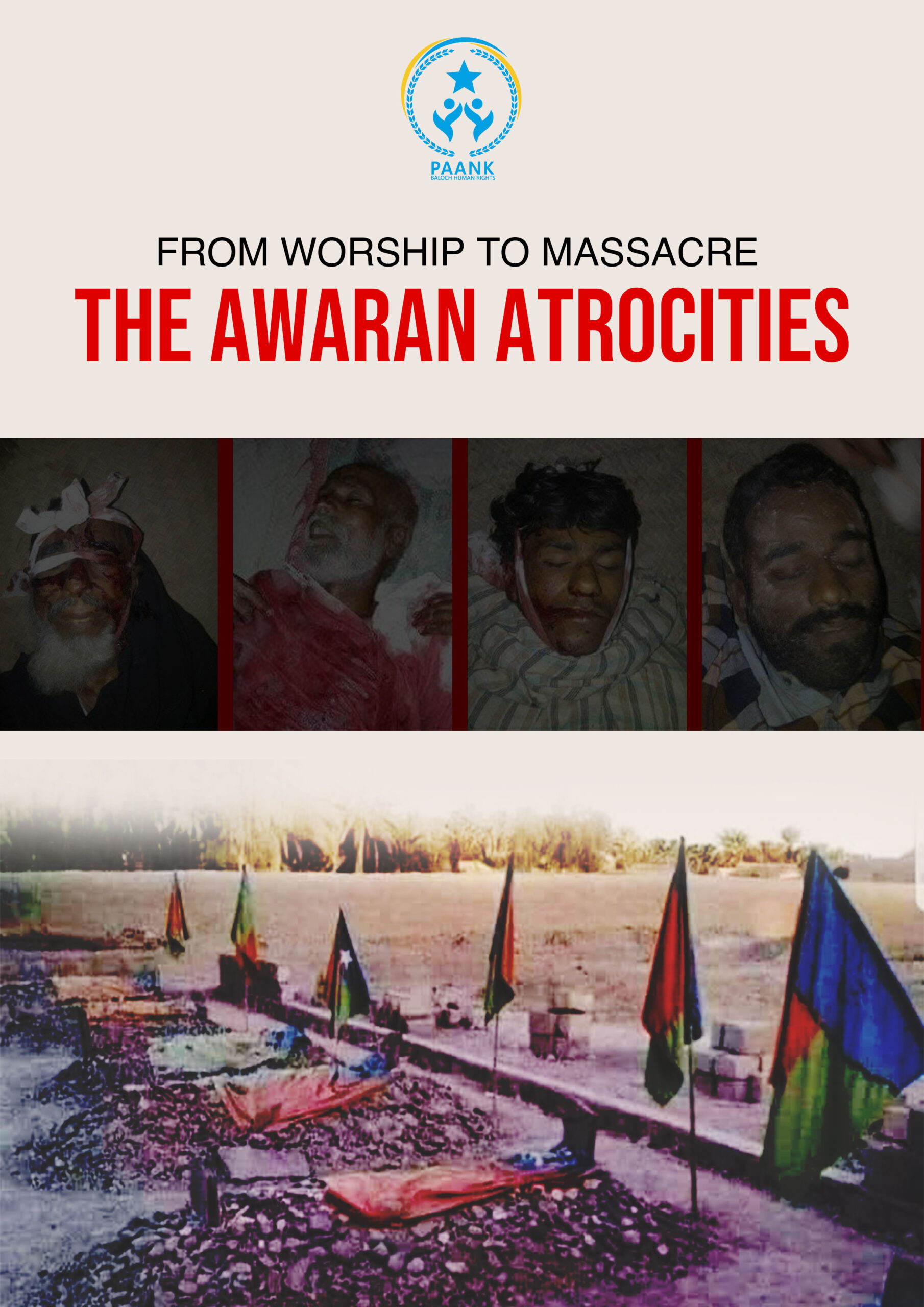For decades, the Pakistani army has committed grave human rights violations in Awaran district, Balochistan. These abuses include extrajudicial killings, enforced disappearances, collective punishment of families of political activists, and the destruction of homes and livelihoods.
Beyond physical violence, the military has deliberately exploited religious and social divisions to weaken the Baloch national movement. Awaran, once a place of resilience and cultural strength, has instead been forced into an environment of fear and division.
The Zikri Massacre of 28 August 2014
On the night of 28 August 2014, Military Intelligence officer Usman, accompanied by two armed men, stormed the Zikiri community’s place of worship in Ziarat-e-Dan, Awaran. What began as an evening of prayer and faith turned into a night of horror. Seven men were killed, and four others were wounded in cold blood.
Those Killed:
Bakhtiar Baloch – farmer, father of Raza Jahangir (former Secretary General of BSO-Azad) – Teertage, Awaran
Mazar Baloch – son of Syad Muhammad (a government employee), father of Alim Baloch (President of the Baloch National Movement) – Harooni Dan, Awaran
Saeed Ahmed – son of Dilmurad (labourer) – Siah Ghazi, Awaran
Niaz Baloch – son of Bangul (labourer) – Siah Ghazi, Awaran
Allah Bakhsh – son of Usman (farmer) – Kahan Zeelag, Awaran
Dad Jan – son of Mir Dost (farmer) – Joser Bazdad, Awaran
Haji Umitan – son of Assa (labourer) – Harooni Dan, Awaran
Those injured:
Dushambay (Teertage)
Noor Jan (Harooni Dann, later forced into suicide on 20 May 2021)
Pir Bakhsh (Bazdad)
Ghulam Muhammad (Gorestani)
This massacre was not random. It deliberately targeted the fathers of political activists such as Bakhtiar Baloch and Mazar Baloch. The intention was clear: to break the spirit of political resistance by punishing families.
A Pattern of Persecution
The attack was part of a wider cycle of collective punishment in Awaran. One year earlier, on 14 August 2013, Bakhtiar’s son, Raza Jahangir, had already been extrajudicially executed by Pakistani forces in Turbat, alongside BNM leader Imdad Bojair.
The brutality did not end there. Survivor Noor Jan, who was injured in the 2014 attack, was relentlessly harassed by the army. On 20 May 2021, under unbearable pressure and repeated threats to hand over his daughter Nazal, who had married pro-independence activist Naeem Dad, he took his own life. His death was not only an act of despair but also a desperate form of resistance to humiliation and coercion.
Collective Punishment in Balochistan
The Awaran atrocities are not isolated incidents but part of a systematic military strategy. Families of activists are routinely targeted: fathers killed, mothers and daughters threatened, and entire communities forced into silence through intimidation and violence. The military exploits religion as a weapon, attempting to manufacture divisions where none exist within Baloch society.
This policy of collective punishment seeks to destroy not just individuals but the very fabric of resistance. It replaces dignity with fear, faith with grief, and community with mistrust.

